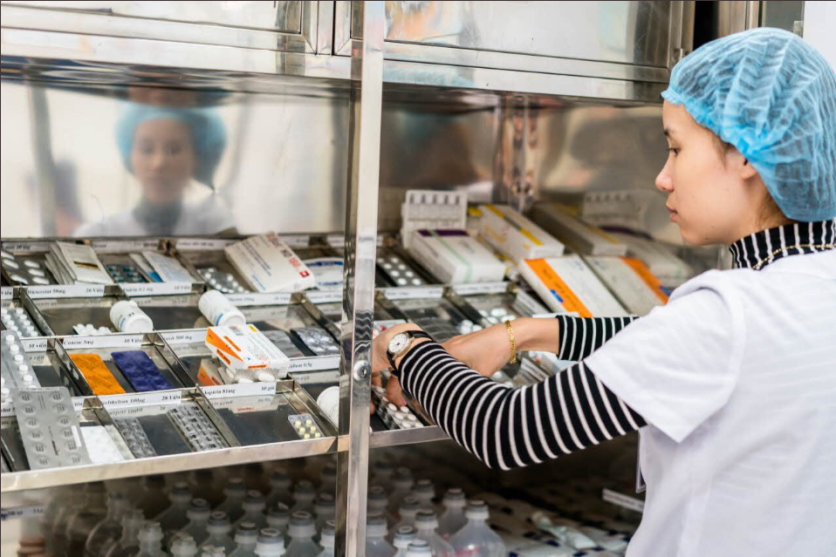A recent study has shown that the coronavirus pandemic can be countered with the help of a medication used for Hepatitis C and is showing a positive effect on the patients who are infected by COVID-19, the disease from the coronavirus.

Is The Drug Safe To Use?
Yes, indeed. A drug used to treat hepatitis C patients is safe to use for patients who have the coronavirus, and it is giving them a better and quicker chance to recover, this is all according to a study that was conducted.
Danoprevir, sold as Ganovo, was given to 11 people with a "moderate" case of COVID-19 along with a drug called Ritonavir, which is used to treat patients who have HIV/AIDS.
The scientists found that it was safe and did not cause any severe side effects from the patients, this, in turn, raising its prospects as a "promising therapeutic option,"
What Other Alternatives Are There Besides Hepatitis C
If and when the doctors decide to use this trial medication, it could become one of the many existing drugs which are already helping COVID-19 positive patients recover. Previous, Techtimes reported about "69 Existing Drugs that Might Pave The Way For Possible COVID-19 Cure," and this might become another addition to the list.
We also explained that there are other means of combating the illness that the coronavirus has; some examples of them are the use of extreme dosage of Vitamin C to tackle some of the cells that will be affected by the coronavirus strain.
Read More : Vitamin C Intake 16 Times More Than Recommended Is Helping Critically Ill Patients From COVID-19
What Happened to the 11 Test Patients
All of them have recovered and took around two days to produce a negative result from COVID-19, the fastest negative effect came only just a day after treatment started, and the last one came eight days right after.
They were rightfully discharged from the hospital after their body temperatures returned to normal, as well as their breathing going back to what it was, their lungs looked healthier in scans, and most importantly, were tested twice, and the results came back negative.
There is a Warning to Heed
Some experts believe that reading too much into trials that have a small test population at a time when researchers and scientists are eager for a breakthrough might be "unreliable" and will need further study before rolling out the treatment on a nationwide or global scale.
There is also a problem with the people who use this medication for their everyday lives; the problem is that they might not have enough for their needs because of the apparent shortages once people know that this is indeed one of the things that might help them against the effects of the coronavirus.
Paul Howard, LUPUS U.K. chief executive, and RAIRDA member stated: "Patients are already experiencing difficulties getting hold of hydroxychloroquine.
''About 90 percent of the 50,000 lupus patients in the U.K. take this medication and, for them, there is no alternative which has the same effect.
''We do not know what it does against COVID-19, but we do know that patients with lupus need this drug. Many patients who take it, with lupus and similar conditions, are already classified as at high or very high risk of severe illness from COVID-19 infection, and any shortage could increase their vulnerability.''
ⓒ 2026 TECHTIMES.com All rights reserved. Do not reproduce without permission.




